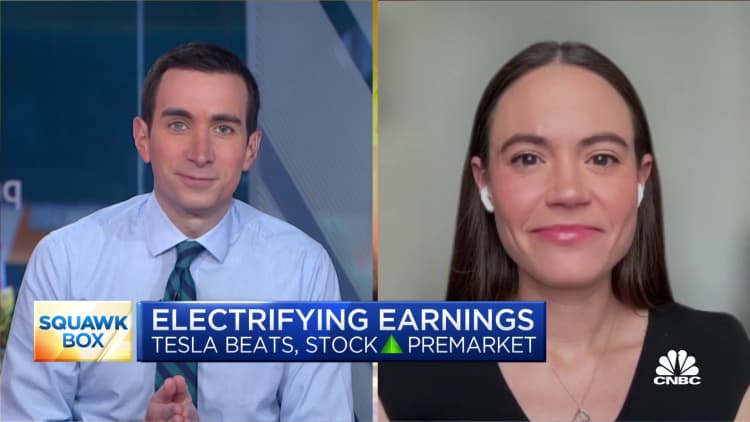For years, Alphabet's Waymo and others leaders have promised autonomous vehicles are just around the bend. But that future has not arrived yet. Why not?
"In one word, it's complexity," said James Peng, CEO and co-founder of Pony.ai, an autonomous vehicle company. "Every time there is a technical breakthrough, there are challenges. We have the AI, the fast computer chips, the sensors. It's all solvable by fitting all the pieces together smoothly. 99.9% is not good enough to perfect the technology."
Despite promises of life-saving, climate-change fighting, and cost-efficient driving, the reality is that "the autonomous vehicle nirvana is 10 years out," said Michael Dunne, CEO of autotech consultancy ZoZoGo. "While it's not impossible to get there, even the most advanced technologies are not there yet and used mainly in confined areas where things are predictable. We are far, far away from universal acceptance."
Not only that, but "the business model is a bigger challenge than the technology," he said.
Self-driving vehicles without steering wheels or brake pedals have been slow to scale and are viewed by many as a novelty. Additional road tests are needed to work out tech glitches. Regulations to permit driverless vehicles are still evolving by city, state, and country. High price tags hovering above $100,000 for an AV-equipped auto are a drawback to individual purchases for most buyers. Commercialization is still underway. Safety concerns remain, particularly after a fatal crash in March 2018 involving one of Uber's vehicles in Tempe, Arizona and multiple incidents involving Teslas being operated in self-driving mode.
Still, market leaders are betting big on smarter transit technology and are testing its viability, logging thousands of road miles to train self-driving algorithms and AI sensors to drive better than humans in all kinds of weather and unpredictable circumstances. Tech giants, automakers, and start-ups including GM's Cruise, Waymo, Baidu, and others have invested billions of dollars and years of R&D in this emerging market poised to reach 12% of new car registrations globally by 2030. Meanwhile, Tesla continues its work on its semi-autonomous autopilot and self-driving systems.
Promising future for robotaxis, robo-deliverys
Now after a decade and some bumpy starts, it's robotaxis, robot-driven deliveries, and autonomous trucks that are emerging as the most promising money-makers in the market.
"Ride-hailing is a lousy business model with unhappy human drivers and urban mobility problems. The next great thing could be fleets of robotaxis," said Erik Gordon, a professor at the University of Michigan where he focuses on entrepreneurship and technology. He envisions urban streets without accidents, honking, traffic jams, and dedicated lanes for self-driving vehicles.
In this next phase of passengers and road testing, the technical complexities are growing with unpredictable traffic patterns and weather factors such as fog and rain, plus lingering social awareness and acceptance issues.
"It will still require a significant amount of time for autonomous driving to be commercialized on a large scale," said Dong Wei, vice president and chief safety operation officer of Baidu Intelligent Driving Business Group in Beijing.
Paid passenger fares in fully driverless robotaxis could be the next step toward the commercial development of this transformative market.

Pony.ai, which ranked No. 10 on the 2022 CNBC Disruptor 50 list, along with Baidu in Beijing, have led the industry in launching fare-charging robotaxis for the public in China. The two companies started charging fares last November in Beijing for their robotaxi services, which have a safety driver monitoring the ride. Additionally, Pony.ai is starting a paid taxi service this May featuring 100 AVs as traditional taxis within the Nansha district of Guangzhou. Both also have been testing AVs and robotaxis in the U.S., although Pony.ai's driverless tests were suspended in California after a vehicle hit a lane divider and street sign in Fremont.
China is targeting smart transportation as a national growth strategy and has designated several sections of major cities for testing. "If you are looking for the perfect place to test autonomous driving, it is hard to beat China for its ambition," said Dunne.
While the Chinese and U.S. markets are developing closely in parallel, given heightened U.S.-China tech innovation competition and restrictions on cross-border investment, one plausible scenario is "two global ecosystems, one that is China-led and one that is U.S.-led with their respective systems and governments," Dunne said. "China does not want U.S. companies vacuuming up data and China testing in the U.S. faces the same issue. Chinese AV companies are likely to maintain R&D in the U.S. but deploy in China for China."
In the U.S., industry leaders Waymo and Cruise expect to soon launch their own paid driverless robotaxis in San Francisco after several months of testing rides with employees. Additionally, Waymo plans to expand its fee-charging driverless rides to downtown Phoenix after pilots in late 2018 for paying customers in suburban Chandler.
Ford and VW-backed Argo-AI have begun operating autonomous test vehicles without a human safety driver in Miami and Austin, Texas, moving around employees. Argo has been testing its self-driving technology on streets in eight cities across the U.S. and Europe, with some of its vehicles, with a human safety driver, being used by passengers in Miami Beach, Florida, through Lyft's ride-sharing network. Lyft has a roughly 2.5% stake in the company.
Amazon-acquired start-up Zoox, which has plans to offer on-demand autonomous transportation in urban settings, is testing its fleet of Toyota Highlanders outfitted with sensors and safety drivers in the Bay Area, Seattle, and Las Vegas.
Billions bet by U.S. and Asian auto, tech giants
Chasing the opportunity, equity funding in AV tech companies eclipsed $12 billion in 2021, up more than 50% from 2020, according to CB Insights. The U.S. funding is dominated by Waymo, which topped out at $5.5 billion including from Alphabet, and by Cruise, which is backed with $10 billion from GM, Honda, and other investors, with a $5 billion line of credit from GM Financial. Pony.ai, co-founded by former Baidu AV lead developer Peng in 2016, is financed with $1.1 billion, including a $400 million investment from Toyota.
Start-ups in the AV space have piggybacked on major automakers and ride-hailing services, for instance, Motional, formed in 2021 through a joint venture with Hyundai and pilots with Lyft. Uber sold its self-driving unit, the Advanced Technologies Group, to Aurora Innovation, after Uber's co-founder and former CEO Travis Kalanick had touted self-driving as a priority. Aurora, invested in by Amazon, Hyundai, and venture firms Sequoia Capital and Greylock, is working on launching a commercial robotic truck system by late 2023, followed by a robotaxi project.
Several other market segments are being carved out as differentiators by companies developing commercial robotaxis. One of the more advanced as it seeks to diversify from its search and advertising core, Baidu is supplying its Apollo Go AV "brains" to robo-buses and other transit means in China while providing Apollo self-driving solutions to automakers. The monthly pricing of Apollo Go over five years is comparable to the labor cost of a ride-hailing driver in major cities in China, a Baidu spokesperson said. The company is also selling intelligent transportation solutions with projects in 34 Chinese cities, for improving traffic conditions, road safety, and air quality. Baidu has further teamed up with Geely (Chinese owners of Volvo) to fund its intelligent electric vehicle business JIDU and mass-produce a robocar for launch in 2023.
Production of robo-vehicles is costly but pursued as another strategy to commercialize the market. Cruise has partnered with GM and Honda to mass-produce the Origin, an all-electric self-driving, shared vehicle due out within a few years from GM's Factory Zero assembly plant in Detroit. Amazon-owned Zoox has built dozens of custom-built, electric, autonomous robotaxis at its plant in Fremont, rolling out gradually. Waymo is expanding its current ride-hail fleet of I-Pacers and Chrysler Pacifica hybrids made in Detroit and collaborating with Chinese automaker Geely to equip its all-electric, purpose-built AVs for U.S. roads in the coming years. Pony.ai recently unveiled its sixth-generation autonomous driving system, expecting to equip a seven-seat Toyota Sienna model and begin road testing in China this year with robotaxis following in 2023.
Robot-powered delivery services are also emerging as a viable path toward commercial scale and profitability. Cruise has partnered with Walmart in the Phoenix area to deliver groceries, and plans to expand the service nationally, said Gil West, Cruise chief operating officer. Nuro, a Silicon Valley robotics start-up in autonomous delivery, is test driving a bot service to Walmart and Kroger customers in several cities, and recently added 7-Eleven customers in Mountain View. Uber began pilots this month of food deliveries by sidewalk robots and self-driving cars in Los Angeles.
For Zoox, supplying Amazon with last-mile deliveries from its shuttles is a possible scenario. "We haven't rule this out as a use case," said Jesse Levinson, Zoox CTO and co-founder. "Our business model is charging people money to take a ride. The biggest cost of a ride-sharing vehicle is the driver. We can amortize the cost of the vehicle by these fares over five years."
It may seem counterintuitive, but the AV long-haul trucking space is moving perhaps the fastest in this evolving market. Jim Scheinman, founding managing partner at Maven Ventures and an early investor in Cruise, noted that Embark Truck and other AV trucking companies will help the trillion-dollar market in many ways. "Not only by keeping our freight costs substantially lower which will continue to be so important in a world of continued supply chain issues and inflation, but also in helping the long haul trucking labor shortages as well as being so much more environmentally friendly," Scheinman said. "Massive wins for everyone and the planet," he added.
One newcomer is Pittsburgh-based Locomation, a hybrid semi-autonomous technology for two-truck convoys, with a driver in the lead vehicle monitoring the ride while another is off-duty in the follower truck, taking a rest. "With trucking in demand for freight and a driver shortage, this helps to solve a pain point," said Cetin Mericli, a co-founder of Locomation, which has been testing with three national trucking customers. "This system can double the efficiency of the drivers, keep the trucks running more often, and speed up deliveries," he said. "In a very 2020 fashion, our inaugural autonomous delivery was a trailer full of TP."
SIGN UP for our weekly, original newsletter that goes beyond the list, offering a closer look at CNBC Disruptor 50 companies, and the founders who continue to innovate across every sector of the economy.







